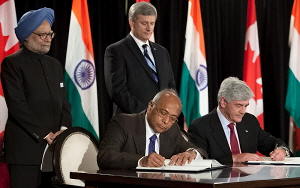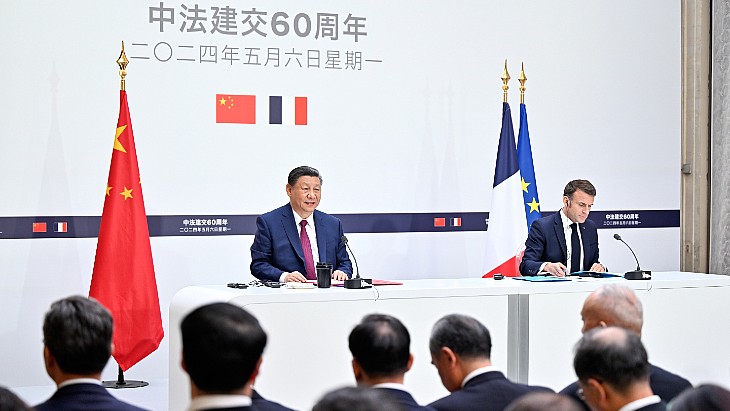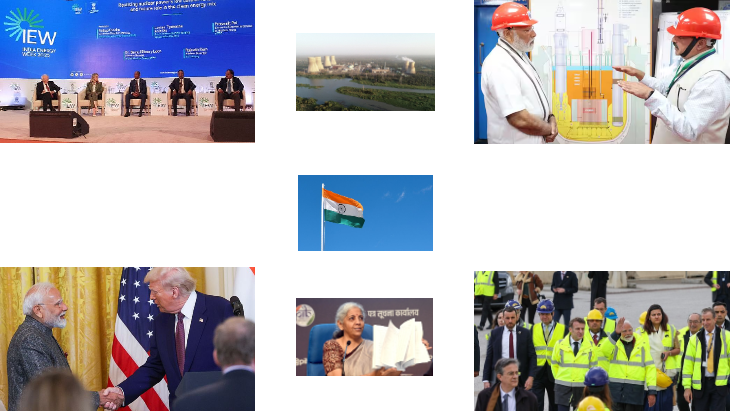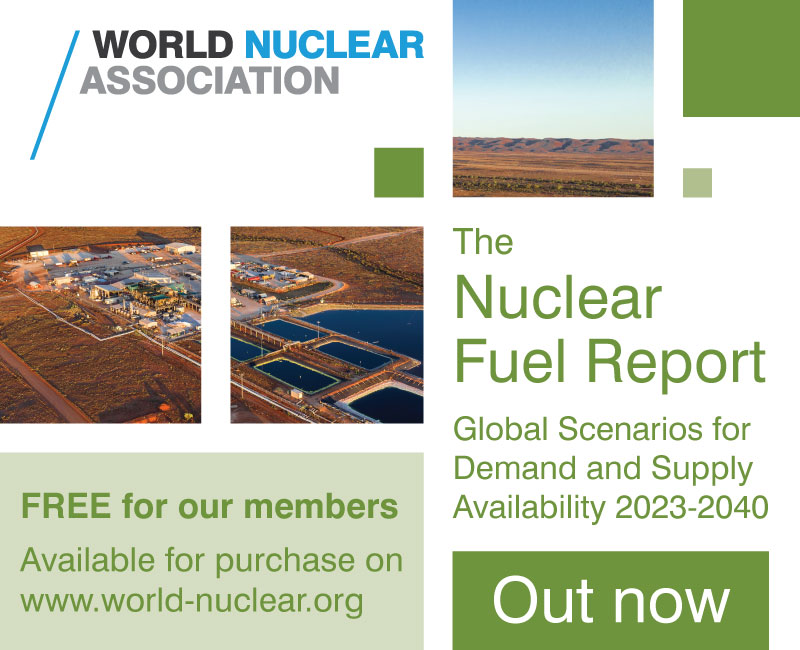India, Canada sign nuclear cooperation agreement
 Canada's nuclear industry will be able to access India's expanding nuclear market under a nuclear cooperation agreement signed by the two countries.
Canada's nuclear industry will be able to access India's expanding nuclear market under a nuclear cooperation agreement signed by the two countries.Canada's nuclear industry will be able to access India's expanding nuclear market under a nuclear cooperation agreement signed by the two countries.
The nuclear cooperation agreement was signed in front of Canadian prime minister Stephen Harper and Indian prime minister Manmohan Singh at a ceremony in Ottawa. The two leaders announced the agreement in November 2009. Now, with the final signature completed, both have said that they are committed to completing all the remaining steps needed to ensure its early implementation.
 |
| The Indian and Canadian prime ministers watch the signing of the agreement (Image: Office of the Prime Minister) |
According to information released by Harper's office, the agreement aims to create an enabling environment that will permit members of Canada's nuclear industry to cooperate with designated civilian nuclear installations under International Atomic Energy Agency (IAEA) safeguards in India. Such agreements provide international treaty level assurances that the nuclear material, equipment and technology involved will only be used for civilian, peaceful and non-explosive purposes. As well as providing access to each other's markets, they also open the door to the possibility of joint ventures.
Japan next?
The first round of negotiations on a nuclear cooperation agreement between India and Japan are under way in Tokyo.
|
India has a flourishing, and largely indigenous, nuclear power program, with plans for 20,000 MWe of nuclear capacity on line by 2020 and 63,000 MWe by 2032, although it has limited domestic uranium resources. However, the country's nuclear weapons program, and hence its status outside the international Nuclear Non-Proliferation Treaty (NPT), meant that it did not have the full-scope safeguards required by the Nuclear Suppliers Group (NSG) for international trade for over three decades. India's effective nuclear isolation came to an end when it reached an agreement with the NSG in September 2008, opening up possibilities for the supply of both reactors and fuel from other countries. India has also signed civil nuclear cooperation agreements with the USA, Russia, France, UK, Argentina, Kazakhstan, Mongolia and Namibia.
Early Canadian-designed Candu pressurised heavy water reactors (PHWR) imported by India in the early 1970s before its isolation from international nuclear trade provided the reference for the country's indigenous reactor designs. With similar infrastructure requirements, the two countries have plenty of scope for technology exchange and cooperation as well as trade in both equipment and materials. Canada is one of the world's major uranium exporters, while India's relatively modest uranium resources mean it will need to import uranium to meet the needs of its ambitious nuclear energy expansion plans.
According to Stephen Harper's office, India is projected to be the world's third largest economy by 2050 and is a priority market for Canada. The nuclear agreement was one of several Canada-India bilaterals covering economic, diplomatic, educational, scientific and cultural areas.
Researched and written
by World Nuclear News













